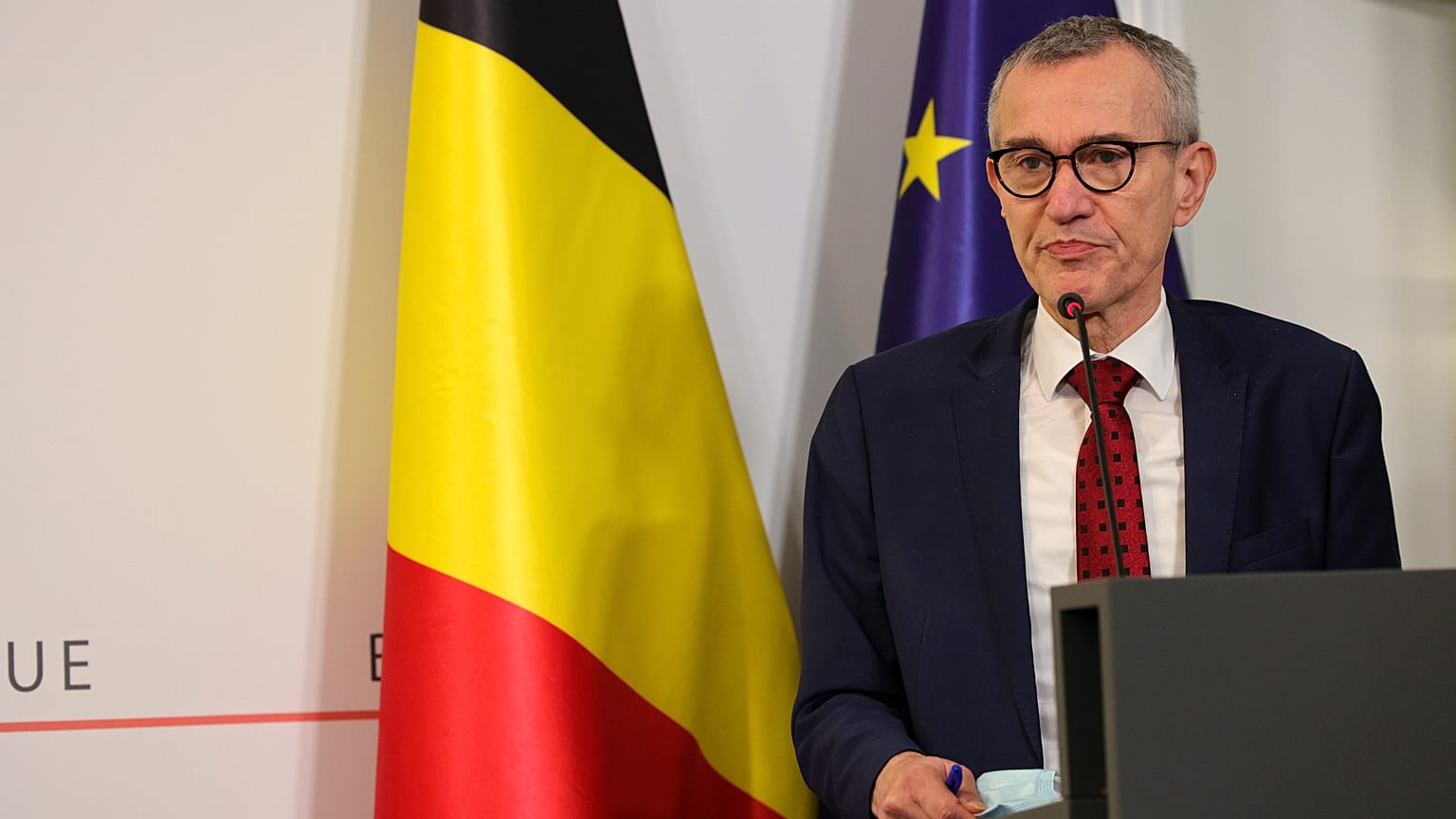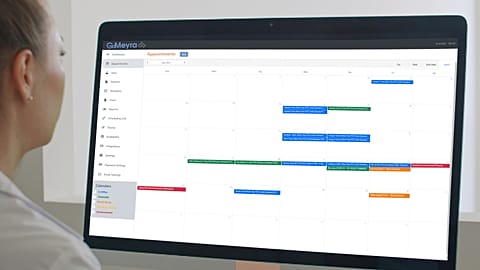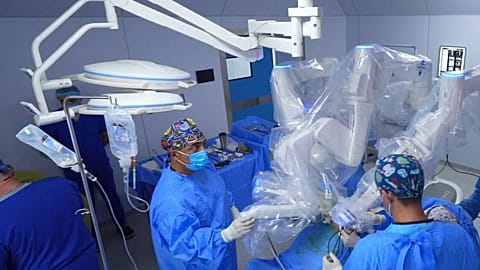For its presidency of the EU Council, Belgium wants to wrap up the EU Health Data Space dossier before the European Parliament ends its term, but concluding negotiations with MEPs on the issue remains tricky, Belgium’s federal health minister told Euronews.
“Optimism of the will” is the Belgian presidency’s “secret weapon” when resolving differences between EU ministers and MEPs on the last big health file left to be agreed upon during the mandate of this Parliament, according to the country's Deputy Prime Minister Frank Vandenbroucke, who carries the health portfolio.
 ADVERTISEMENT
ADVERTISEMENT
 ADVERTISEMENT
ADVERTISEMENT
“I can only promise that my effort will be maximal. We must land [on a compromise] even if time is very short,” he said, adding that other EU ministers are also keen to settle outstanding sticking points on EHDS.
Vandenbroucke, who will lead the negotiations for the EU Council in the coming months, said key outstanding sensitive issues relate to safe use of patients’ data.
In particular, lawmakers are being asked to update the original proposal with basic guarantees such as the right to object to the processing of personal data granted to individuals under the General Data Protection Regulation (GDPR), the EU framework for sharing general pseudonymised data.
“The question is, how can you regulate data sharing in a way that allows comprehensive, well-organised data sets to be used by those who can use it in the interest of the patients but respecting citizens’ rights?” Vandenbroucke asked.
Although a variety of opinion has prevented final agreement on the dossier, the Belgian minister believes that those around the negotiating table agree on the core tenet of the Commission’s initial proposal, which takes empowerment of citizens as its starting point.
“There is a common aspiration in terms of safety in provision and use of data, minimisation of risks and comprehensive sharing to improve healthcare, but also science and research,” he said.
An overarching framework at the EU level is “badly needed” to improve the quality of national initiatives on this front which are growing. Most recently, Belgium has also launched a national health data agency to facilitate access for secondary use of data.
“Think about orphan drugs. How many patients with rare diseases do you have in Belgium? Not many,” he said, adding that pulling insights to make rapid progress in these therapies requires samples and data from throughout the EU.
Setting the scene for a Critical Medicines Act
The programme of the Belgian presidency, which will run until the end of June, is packed with health initiatives. “We are bound to have such an ambitious programme as we are at a critical juncture,” Vandenbroucke pointed out.
The issue of medicine shortages, in particular, is something the Belgian presidency “would really like to see developed”. “It's certainly a crucial dimension of the European Health Union being able to tell citizens that you work together to guarantee the supply of medicines everywhere,” he said.
Last December, the European Medicines Agency (EMA) published the much-anticipated list of critical medicines which considered more than 200 active substances essential for healthcare systems across Europe.
“Based on the work done by the EMA and now Hera, DG Grow and DG Sante [the Commission’s services responsible for the list], we will start mapping the vulnerabilities and the risks for a limited set of medicines to improve our action,” he explained.
This effort is expected to breathe life into a future fully-fledged Critical Medicines Act which Vandenbroucke sees as “a battery of legal initiatives” which should include, for instance, a revision of the EU framework for the procurement of medicines with less emphasis on just price and more considerations of aspects such as supply risks or economic sustainability.
In this sense, the announcement of a Critical Medicines Alliance - a platform of voluntary cooperation in the field of supply of critical medicines open to all stakeholders - is “an intermediary, pragmatic step towards the Critical Medicines Act", he said.
“[The] invitation has been launched, so any stakeholder who's interested to cooperate can join,” said Vandenbroucke, adding that he hopes to present the complete alliance as such at the next gathering of EU health ministers on 24 April.
Healthcare workforce and Cancer plan
Another topic of concern is the struggling situation healthcare workers face across the continent – an issue that was discussed last week in Paris during a health ministerial meeting of the Organisation for Economic Co-operation and Development (OECD) chaired by Vandenbroucke himself.
“We are in for ten very difficult years for fundamentally demographic reasons,” he said.
Europe risks being caught between two trends, he believes: on the one hand an ageing population that will need more care, and on the other, waves of retirement within the healthcare workforce.
"Zero-sum solutions", such as importing health workers from countries which themselves face shortages, should be avoided in the first instance, according to Vandenbroucke.
The solution will be found by cooperation at EU level while respecting that both investment in - and reform of - healthcare workforces remains a national competence, he said.
However, learning from each other at the EU level can drive real reform, according to the minister. “My 25-year experience is that the EU is often a very productive arena to shift frontiers in the thinking by exchanging experiences.”
There is one legal instrument however - the Professional Qualifications Directive - through which the EU could tackle the issue from an internal market perspective, over which it has competence, rather than as a matter of public health.
“We would like to see a kind of a critical reflection on that legal framework,” Vandenbroucke said.
Although “pretty formalistic and rigid”, this framework constrains countries' idiosyncracies when issuing titles to health workers by reference to training and education, and allows for professional mobility across the EU.
The minister believes the existing framework “maybe insufficiently protective” in guaranteeing mobility of health personnel throughout Europe, when weighed against the goal of securing the greatest protection for patients.
The Belgian presidency will also be focused on a critical stocktaking exercise of the EU's beating cancer plan.
“It's a tremendous initiative, but it seems that part of what has been in the pipeline has stalled - notably the legal initiatives for cross-border taxation of tobacco and the labelling of alcoholic beverages,” he said.
The Belgians have scheduled a high-level meeting on alcohol labelling, a topic whose perceived neglect at EU level also recently irked the World Health Organisation (WHO). “We would like to create some new momentum on this,” he said.

















